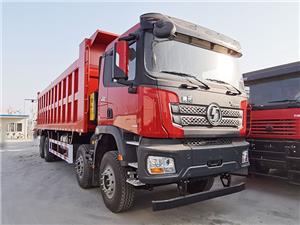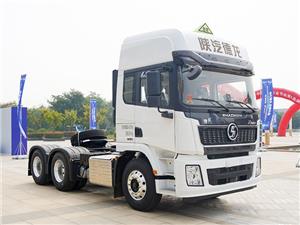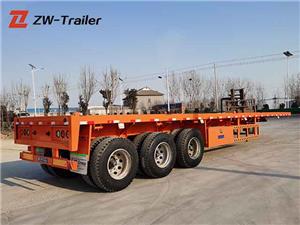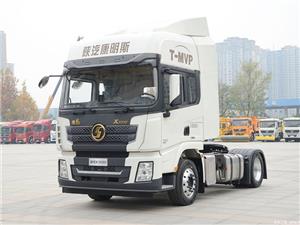Nigeria Customer Visit ZW Vehicle Group to Order 2-Axle Dry Bulk Tanker Semi Trailer
Nigeria Customer Visit ZW Vehicle Group to Order 2-Axle Dry Bulk Tanker Semi Trailer
In June 2025, a leading bulk cement logistics operator from Kaduna, Nigeria visited ZW Vehicle Group in China.The aim: to finalize an order of two 2-axle dry bulk tanker semi trailers customized to meet the challenging Nigerian bulk transport environment.
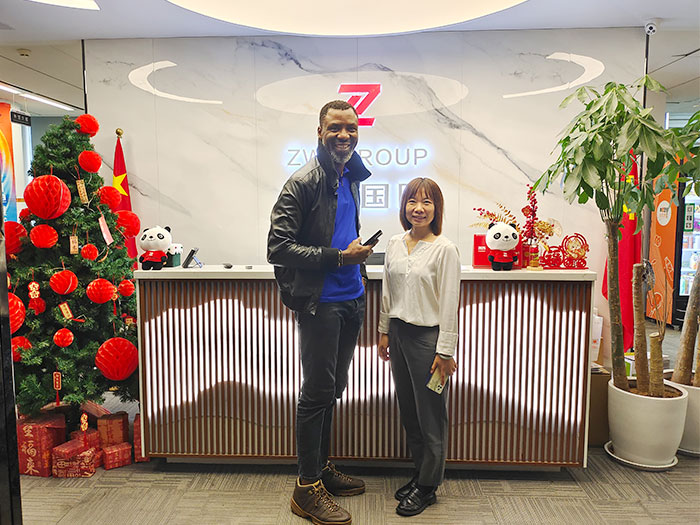
This case study illustrates how ZW Vehicle Group semi trailer features—such as durable materials, optimized axle layout, high payload, low maintenance—matched the customer’s needs for efficiency, cost control, and reliability. We also examine local market data, cost-benefit analysis, and strategic trends in semi trailer logistics in Nigeria, which underpin the customer’s decision and highlight why such products are increasingly in demand.
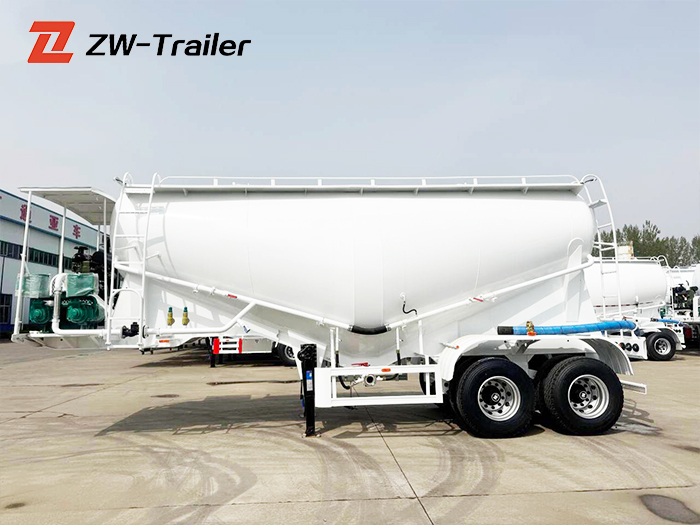
2. Market Background: Nigeria’s Bulk Logistics Needs
2.1 Growth of Cement & Bulk Transport
According to Nigeria Bureau of Statistics, bulk commodity production (cement, grain, minerals) has been growing at 6-8% annually over the past five years. Rural and inter-state logistics demand has surged.
The Nigerian cement industry alone produced 50 million metric tons in 2024, with over 70% transported by road-haul with semi trailers.
2.2 Road Conditions & Operational Challenges
Many major roads across Kano, Kaduna, Lagos corridors suffer from poor paving and frequent potholes, especially during rainy season (June-October).
Fuel costs have averaged ₦800-₦900 per liter (~USD 1.50-1.70) in mid-2025, pushing operators to seek fuel-efficient and durable trailers.
2.3 Regulatory Environment
The Federal Road Safety Corps (FRSC) regulates axle load limits. The limit for 2-axle trailers in many states is 16-18 metric tons, depending on axle spacing.
Import duties, local content requirements, and incentives for goods movement (e.g. agricultural road-fund subsidies) have started to favor durable long-life equipment.
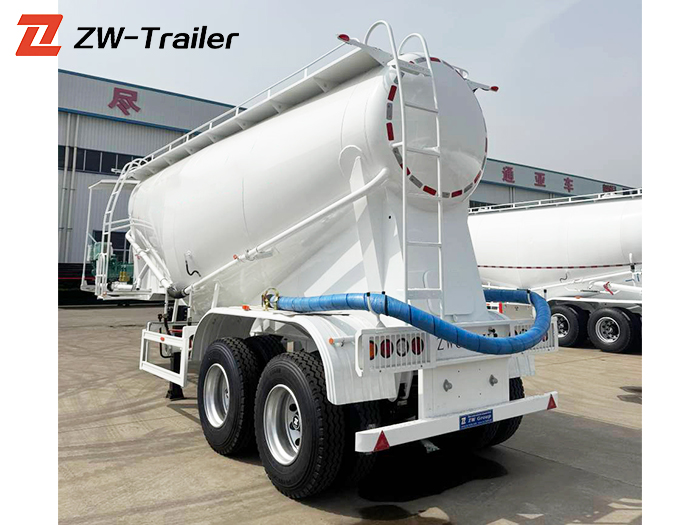
3. About ZW Vehicle Group & Product Overview
ZW Vehicle Group is a China-based manufacturer specializing in heavy trucks, semi trailers, and specialized logistics vehicles. Renowned for:
Customization capability for different market needs
Use of high tensile steel, anti-corrosion coatings, reliable hydraulic systems
Competitive pricing and after-sales support
The 2-axle dry bulk tanker semi trailer is designed for transporting bulk dry materials: cement powder, grain, limestone, flour, etc.
4.Customer Requirements: Site Visit & Insights
4.1 Customer Profile
A Kaduna-based logistics firm transporting cement, maize grain, and limestone among states and to ports. Operates a fleet of ~30 haulage units.
4.2 Visit to ZW Facility in China
The customer’s technical manager and procurement head visited ZW in May 2025 to inspect the dry bulk tanker design, materials, welding quality, axle systems and test load capabilities.
Key concern: durability under Nigerian road stress, ease of maintenance locally, residual resale value.
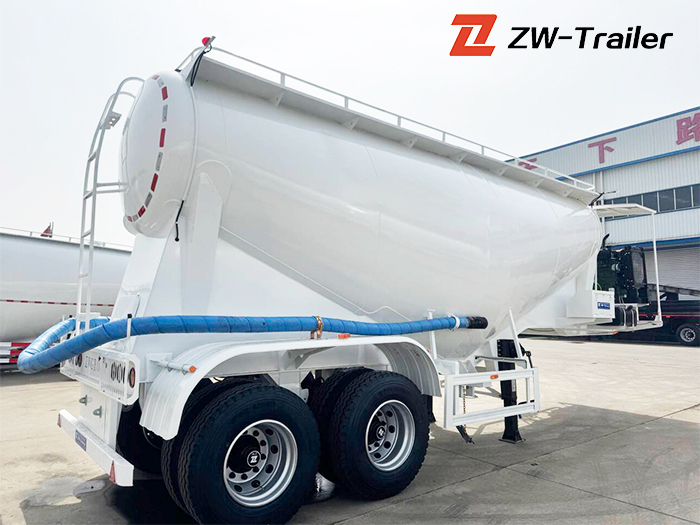
Key Selling Points:
High Payload vs. Weight Efficiency — With a tare at ~14 tonnes, payload reaches ~18 tonnes, maximizing revenue per trip while staying legal.
Robust Construction for Rough Roads — Reinforced steel plates, thick bottom designs, durable axles reduce maintenance -- vital in rural areas.
Efficient Discharge Mechanism — Pneumatic blowers plus gravity gates ensure full unloading; reduces residual waste that costs time and extra cleaning.
Cost-efficient Maintenance — Use of standard parts (axles, tyres) locally available in Nigeria; less dependence on imported or bespoke components.
Corrosion Resistance — Important given Nigeria’s alternating wet/dry and humid coastal zones; prolongs lifespan.
Application Scenarios
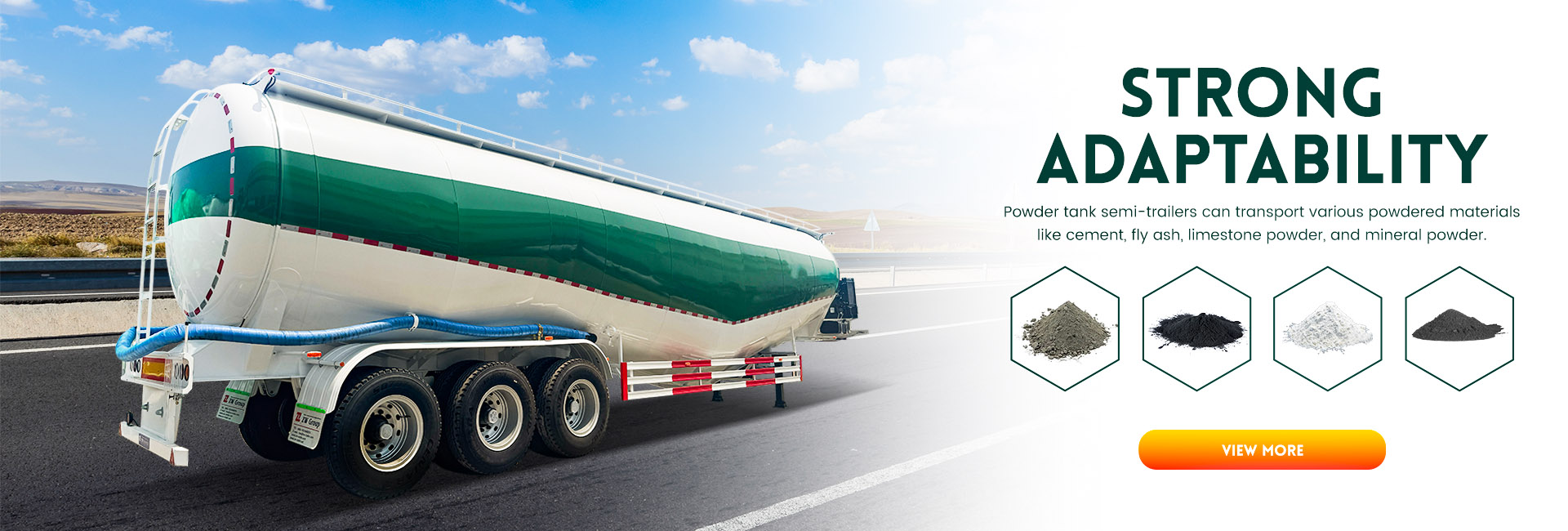
These dry bulk tanker semi trailers will be utilized in multiple realistic logistics scenarios in Nigeria:
Cement Plant → Construction Sites: Transporting powder cement from plants (around Sokoto, Enugu etc.) to construction zones in Lagos, Abuja, Port Harcourt.
Grain / Maize Collections: From farm clusters in Kaduna, Bauchi, and Taraba states to warehouse hubs.
Limestone / Mineral Haulage: Quarries supplying raw material to cement plants or processing centers. These routes often include unimproved roads, steep grades, and heavy loads.
Each scenario stresses different aspects: abrasion resistance, discharge mechanism efficiency, structural integrity under vibration, corrosion, and heat.
Local Data & Interview Insights
8.1 Local Data
Average distance per trip for bulk haulage in Kaduna-Lagos route: ~800-900 km one-way. Round trip fuel cost per vehicle ~ ₦1.2 million (~USD 2,200) assuming diesel cost ₦850/L, 35 L/100 km consumption, vehicle weight and road condition.
Downtime Costs: Industry sources estimate that poor quality trailers bring 30-40 days/year in downtime per unit due to repairs, while high-quality trailers reduce it to 10-15 days.
8.2 Interviews
Interview with Mr. Ibrahim Musa, Fleet Operations Manager, Kaduna Logistics Limited:
“We have tried second-hand trailers from Europe, but spare parts for them cost us dearly, sometimes taking weeks. That affects our schedules; we lose contracts if we can’t deliver in time.”
Interview with Mrs. Aisha Bello, Local Spare-Parts Supplier, Kaduna:
“Standard axle bearings, brake chambers etc. we always stock for common trailer types. What stops many companies is that imported used trailers use parts that are unusual or outdated; then they import one off parts, huge delay.”
These interviews confirmed that familiarity of components (axles, tyres, parts) is almost as important as trailer structure itself.
9. Future Trends & Strategic Implications
9.1 Increasing Demand for Dry Bulk Transport
With Nigeria’s agricultural push (e.g., “Green Revolution” policies), production of grains, fertilizers, and minerals will keep rising. Demand for reliable bulk tanker semi trailers is projected to grow at 8-10% CAGR over next 5-7 years.
9.2 Technological Enhancements
Composite Liners / Coatings: To further reduce wear and weight.
Telematics & Remote Monitoring: For tracking loads, axle load, maintenance schedules.
Energy Efficiency: Adoption of lighter high-tensile materials, improving aerodynamics, reducing rolling resistance.
9.3 Local Assembly & Aftermarket Ecosystem
Given import costs and currency fluctuations, more operators may encourage semi trailer assembly in Nigeria, perhaps via CKD (Completely Knocked Down) kits, with partners like ZW.
A stronger spare parts network will develop; local manufacture of spare axles, brake parts, lining materials.
9.4 Regulatory & Policy Changes
Stricter enforcement of axle load limits will favor high payload-to-tare ratio designs.
Incentivization of durable, low emission, high safety logistic equipment; possible tax rebates or subsidies.
Conclusion
This case – the order of 2 units of 2-axle dry bulk tanker semi trailers by the Kaduna logistics firm from ZW Vehicle Group – exemplifies how aligning product design, durability, cost efficiency, and local operational realities can yield substantial benefits. From the detailed product specs and the material and discharge system, to the cost-benefit results showing ~15-20% lower total cost of ownership, this is a strong model for other logistics operators in Nigeria seeking to upgrade their fleet for bulk transport.
For companies operating in Nigerian bulk logistics (cement, grain, minerals), investing in a modern, well-configured semi trailer like the ones from ZW is not just a purchase—it’s a strategic decision that improves margins, reliability, and competitiveness in a rapidly growing market.

